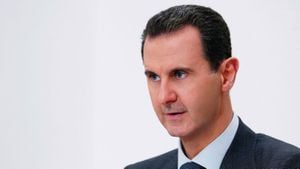Proposed Changes to Bus Services Spark Discussion Throughout Brazil
Recent developments concerning bus services and tariffs across Brazil have generated substantial discussion, reflecting the varying approaches taken by different cities to address the challenges facing public transportation.
Beginning with Rio de Janeiro, the state government has announced a pilot project to experiment with natural gas and biometane-powered buses on two intermunicipal lines. This initiative aims to significantly reduce emissions—potentially by as much as 20% for CO2, along with reductions of up to 90% for harmful particulate matter and nitrogen oxides. The first two lines selected for this project connect Rio de Janeiro with Barra Mansa and Duque de Caxias with Barra da Tijuca, serving various passenger needs and routes.
According to Cássio Coelho, the Secretary of Energy and Economy of the Sea, the introduction of these gas-powered vehicles is expected to bring both improved air quality and greater comfort for passengers. The pilot scheme is supported by the state’s transportation secretary and has been backed by more than R$ 125 million allocated for the establishment of dedicated fuel stations by 2027. "The first buses powered by gas will provide less noise pollution and emissions, alongside enhanced passenger comfort," Coelho stated during the announcement.
Adding another layer to the public transport narrative, the state of Rio's government is preparing to mandate the inclusion of electric buses on select intermunicipal lines by 2025, as part of their broader plans to transition to more sustainable energy sources.
Meanwhile, the issue of bus tariffs is raising eyebrows elsewhere. On December 16, 2024, it was reported by local media outlets like Jundiaí News, the city's Chamber passed legislation to update the framework for public transport concessions, which does not include any tariff increase. Despite some rumors on social media, the current subsidy structure is safeguarded by federal law and ensures continued support for operational costs impacted by inflation.
Aloysio Queiroz, the city’s mobility and transport manager, emphasized the importance of ensuring quality and transparency for passengers. He remarked, "The legislation aims to modernize public transport service delivery, ensuring it continues to be reliable, sustainable, and focused on the community." Jundiaí has been consistent in increasing its subsidies over the past eight years, with R$ 60 million allocated for these purposes just this past year, which helps cushion users against rising transport costs.
On the other end of the spectrum is São Paulo, where Mayor Ricardo Nunes recently hinted at the possibility of increasing bus fares for the first time since January 2020. Currently fixed at R$ 4.40, this fare has drawn scrutiny, particularly as inflation stood at 32% over the same period. Nunes conveyed the dilemma his administration faces, balancing the need for fiscal responsibility against the potential backlash from the public for any fare hikes.
"We still don’t know if we can maintain the tariff or if we will have to implement corrections," Nunes explained. He reassured constituents, saying, "Promises are there not to exceed inflationary pressures by 32%, but we must also avoid transferring resources from health or education to cover transport costs. Every area must function harmoniously." This call for balance reflects the widespread decline in public transportation usage—down to 7 million bus riders daily from 9 million before the pandemic. This trend mirrors decreases witnessed across many transit systems nationwide, raising additional concerns around sustainability and accessibility.
To close, the juxtaposition of initiatives and challenges across Rio de Janeiro, Jundiaí, and São Paulo highlights the complex and multifaceted nature of public transport reforms currently underway. With innovations like gas-powered vehicles set to debut alongside policy measures containment for subsidies and fare adjustments, how Brazil manages its public transport may well determine not only the operational efficiency of its systems but also the accessibility and satisfaction of its users for years to come.
Brazil stands at a crossroads as it contemplates the future of its public transport systems, balancing environmental impact desires with economic realities and user needs. Navigational strategies implemented today will lay the foundation for sustainable transit solutions moving forward.



